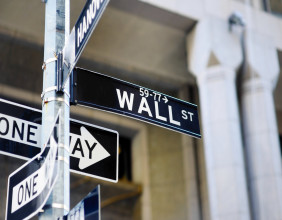Choosing a Broker or Crypto Exchange
To start purchasing cryptocurrency, it's important to choose between a broker or a cryptocurrency exchange. Both provide access to crypto, but they differ in how they operate.
What is a Cryptocurrency Exchange?
A cryptocurrency exchange connects buyers and sellers for trading cryptocurrencies. These platforms often feature lower fees but can be more complex, offering multiple trade types and advanced charts. This setup may feel overwhelming for beginners, but learning the basics can help avoid the higher costs associated with beginner-friendly options, which often charge more for ease of use.
What is a Cryptocurrency Broker?
A cryptocurrency broker simplifies the process of buying crypto with an easy-to-use interface, handling the interaction with exchanges on your behalf. However, brokers may charge higher fees than exchanges, and some that advertise as “free” may still make money through other means, such as selling trading information or not executing trades at the best market price.
Create and Verify Your Account
After selecting a broker or exchange, the next step is to open an account. Some platforms require identity verification to comply with regulations and prevent fraud. This may involve submitting identification like a driver's license or passport, and in some cases, providing a selfie for comparison with the submitted documents. Verification is often required before making any transactions.
Deposit Funds
To buy cryptocurrency, funds need to be deposited into the account. This can be done by linking a bank account, authorizing a wire transfer, or using a debit or credit card. Depending on the payment method, there may be a waiting period before the funds are available for trading.
Place a Cryptocurrency Order
Once the account is funded, it's time to place an order. There are numerous cryptocurrencies to explore, ranging from popular ones like Bitcoin and Ethereum to lesser-known options.
Select a Storage Option
Cryptocurrency exchanges do not provide protection like the Federal Deposit Insurance Corp. (FDIC). It's important to choose a storage method, whether leaving the crypto in the exchange’s wallet or transferring it to a more secure option, like a hardware wallet. Always consider financial goals and risk tolerance, as cryptocurrency can be highly volatile and speculative.





